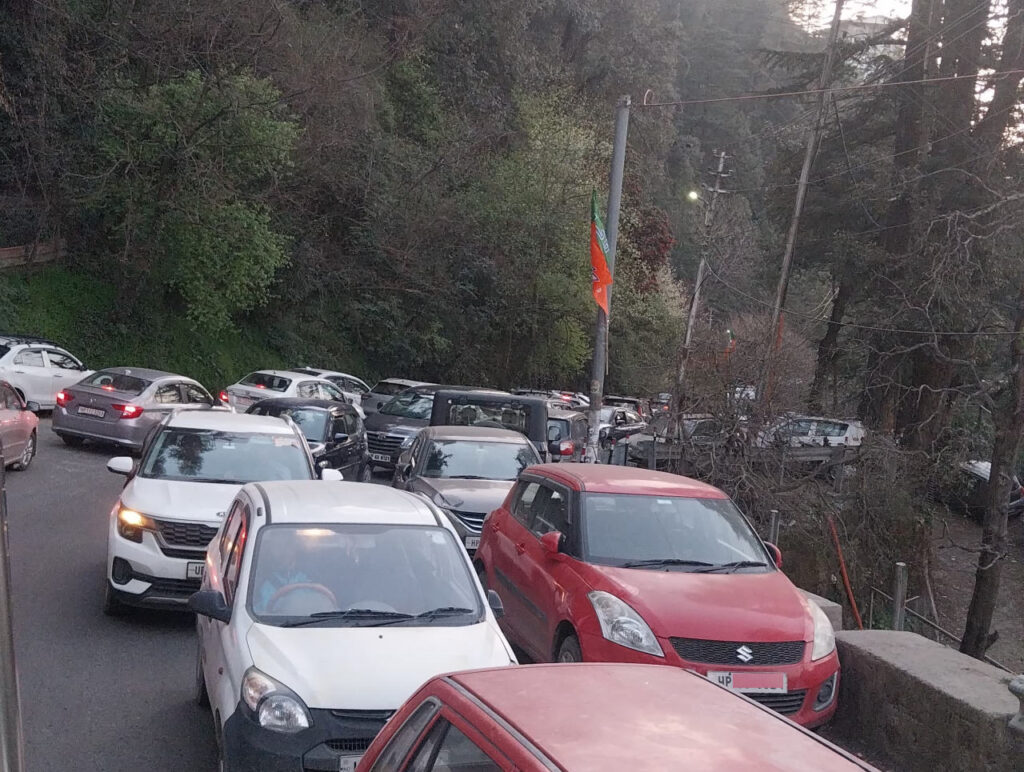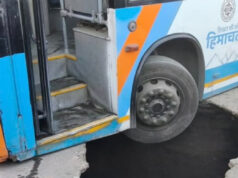Shimla – In a bid to balance environmental conservation with modern convenience, Shimla’s Municipal Corporation (MC) has greenlit its proposal to charge a green fee from vehicles entering the city from other states. Unlike traditional toll systems, this plan ditches physical barriers for a seamless, tech-driven approach, relying on SMS alerts to collect fees. The proposal, passed during a monthly MC meeting chaired by Mayor Surender Chauhan, now awaits final approval from the Himachal Pradesh state government.
Under the new system, out-of-state vehicles—excluding electric ones—will be subject to a green fee aimed at funding Shimla’s environmental preservation efforts. The initiative marks a significant shift from past attempts, which stumbled over logistical hurdles. The MC has been exploring the green fee concept since 2015, but earlier proposals languished without government backing. This time, the corporation has slashed rates and introduced a cutting-edge collection method to ensure success.
Municipal Commissioner Bhupendra Atri, who presented the proposal, highlighted its design. “We’ve moved away from stopping vehicles at barriers. Instead, high-tech cameras at Shimla’s entry points will track out-of-state registrations,” he explained. These cameras will link to Regional Transport Office (RTO) records, triggering an SMS to vehicle owners with payment details. Owners will have 24 to 48 hours to settle the fee online via debit/credit cards, net banking, or QR codes, with a follow-up alert for non-compliance. The system will integrate with the Smart City Mission’s Command and Control setup, ensuring efficiency and transparency.
The revised green fee rates are notably lower than those proposed earlier: two-wheelers will pay Rs 30 (down from Rs 50), small cars Rs 80 (from Rs 200), cargo vehicles Rs 100 (from Rs 200), and trucks or buses Rs 200 (from Rs 300). Local residents with out-of-state registered vehicles can dodge the fee by obtaining a certificate from the MC. Electric vehicles, meanwhile, enjoy a full exemption, underscoring Shimla’s push for greener transport options.
The green fee’s start date, validity period, and penalties for non-payment remain pending, hinging on state government guidelines. The revenue generated will fuel environmental projects, addressing the strain tourism and traffic place on Shimla’s delicate Himalayan ecosystem. A 2014 trial run of the green fee faltered due to disputes over barrier-based collection—a pitfall this tech-savvy plan aims to avoid.
With its blend of innovation and eco-consciousness, Shimla’s “no barriers, just SMS” strategy could redefine how hill stations manage sustainability. As the proposal heads to the government for the final nod, residents and visitors alike await its rollout, poised to see technology and nature work hand in hand.















